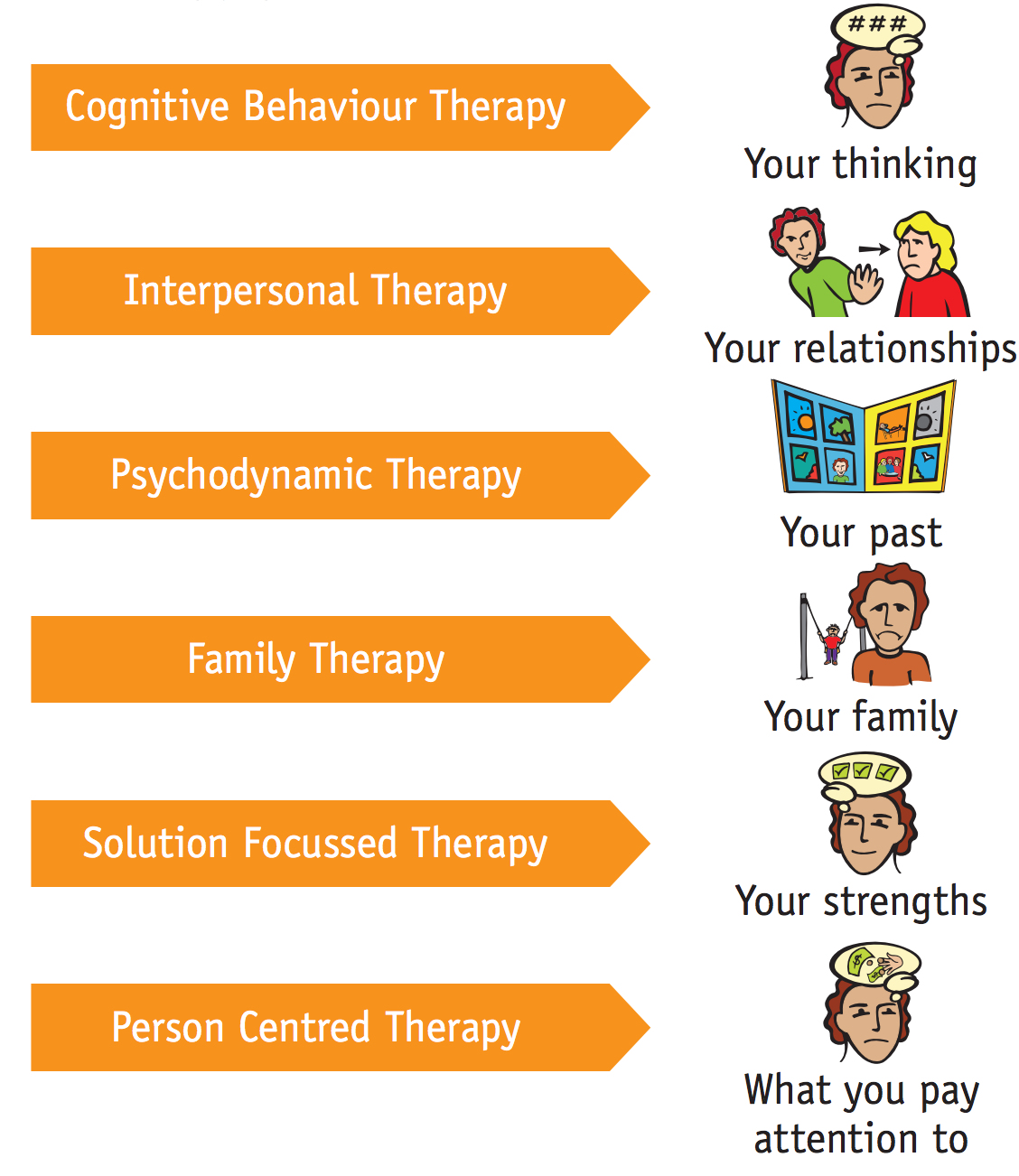Exploring the Advantages of Virtual Therapy in Modern Mental Healthcare
The rise of virtual therapy marks a significant change in mental health and wellness care. It provides improved accessibility, allowing people from varied backgrounds to seek help without geographical constraints. Flexibility in scheduling fits varying lifestyles, while the comfort of home can foster openness. The implications of these modifications prolong past simple ease. The progressing landscape of therapy raises important concerns regarding its lasting impacts on individual interaction and treatment end results.
Boosted Access for All
Standard therapy usually offers barriers such as geographical area and organizing disputes, virtual therapy significantly enhances ease of access for individuals looking for mental health assistance. By getting rid of the need for physical traveling, virtual therapy enables customers from remote areas or those with mobility obstacles to link with certified experts. This setting of therapy can reach underserved populaces who may do not have regional psychological health sources, thus resolving disparities in accessibility to care. Furthermore, virtual platforms can provide to varied demands, using solutions in multiple languages and suiting different cultural backgrounds. Clients can involve with a wider range of experts, offering them with options that straighten with their details requirements and preferences. This boosted ease of access fosters a much more comprehensive setting, enabling individuals to seek help without the stigma typically linked with in-person brows through. In general, virtual therapy represents a substantial advancement in making psychological healthcare more available to all.
Adaptability in Scheduling Sessions

As virtual therapy remains to acquire traction, its inherent adaptability in organizing sessions verifies to be a substantial benefit for lots of people. Unlike conventional in-person therapy, virtual therapy allows clients to choose session times that ideal fit their individual and expert commitments. This flexibility suits those with demanding work routines, family members responsibilities, or other dedications that can make participating in physical visits testing.
In addition, clients can quickly reschedule or change their sessions as needed, reducing the stress related to inflexible visit systems. The availability of different time ports throughout the week, consisting of nights and weekend breaks, better enhances availability. This versatility not just encourages consistency in presence however likewise promotes a greater dedication to the therapeutic procedure. Ultimately, the adaptability in scheduling sessions represents a transformative change in mental wellness treatment, equipping individuals to prioritize their health without giving up various other facets of their lives.
Convenience of a Familiar Atmosphere
The convenience of an acquainted atmosphere considerably boosts the effectiveness of virtual therapy for several clients. Engaging in therapy from the safety and security of their very own homes enables people to really feel more comfortable, reducing stress and anxiety that may come with traditional in-person sessions. This experience can assist in open interaction, making it possible for clients to express their thoughts and feelings extra easily.
The visibility of personal products and the ability to manage their surroundings can contribute to a sense of safety and security and relaxation. Clients commonly report that remaining in a comfortable room enables them to concentrate more on the healing process instead of the establishing itself.
In addition, the informal nature of virtual sessions can aid dissolve barriers that may exist in a standard office setting, cultivating a much deeper connection with therapists. Generally, the comfort of acquainted environments plays a vital duty in boosting the healing experience and effectiveness for numerous people seeking psychological health support.
Broader Series Of Therapeutic Choices
A wider variety of restorative options comes to be readily available via virtual therapy, permitting clients to gain access to various methods that may not be feasible in typical setups. This adaptability allows individuals to discover diverse strategies such as cognitive-behavioral therapy, mindfulness practices, art therapy, and also specialized interventions like trauma-informed care or dialectical behavior modification.
Additionally, clients can select from a more comprehensive spectrum of therapists, consisting of those that specialize in particular niche areas or specific populaces, enhancing the chance of finding a suitable match. Virtual systems usually offer accessibility to team therapy sessions, assistance areas, and workshops that might be geographically not available or else.
This variety equips clients to involve in their recovery process according to their special choices and requirements, potentially boosting inspiration and commitment to therapy. Because of this, the landscape of psychological healthcare comes to be extra inclusive and versatile, catering to a bigger array of specific experiences and challenges.
Reduced Stigma Bordering Therapy
Accessing therapy via virtual platforms adds to a considerable decrease in the preconception commonly connected with psychological healthcare. By providing a discreet and exclusive atmosphere, virtual therapy enables individuals to seek help without the worry of being judged or recognized. This privacy interest those that may otherwise be reluctant to go after in-person therapy because of societal understandings surrounding mental wellness.
Additionally, as the prevalence of virtual therapy rises, it stabilizes the conversation around mental wellness, making it a much more appropriate component of everyday life. Individuals frequently really feel a lot more comfortable discussing their experiences online, advertising openness and minimizing sensations of isolation. The ease of access of these services likewise urges a more comprehensive group to engage with mental wellness resources, promoting a culture of assistance instead than pity. Eventually, the increase of virtual therapy her response plays an essential role in reshaping mindsets in the direction of seeking aid, adding to a more approving culture relating to psychological health difficulties.
Cost-Effectiveness and Affordability

Reduced Session Prices
Lots of people seeking mental wellness support locate that virtual therapy significantly reduces session costs compared to traditional in-person options. The elimination of traveling expenses and time off job frequently adds to total financial savings. Furthermore, several virtual therapists provide affordable rates due to lower overhanging prices related to keeping a physical office. This change in expenditure enables clients to access high quality psychological health services without the monetary pressure that might feature conventional therapy. For several, this cost makes it possible for much more regular sessions, which can improve therapy results. Therefore, virtual therapy not only democratizes access to psychological wellness treatment but additionally offers a sustainable monetary version that lines up with customers' budgets, making mental health and wellness support a lot more attainable for a broader target market.
Broadened Gain Access To Alternatives
While typical therapy often presents logistical obstacles, virtual therapy considerably expands accessibility choices for individuals looking for mental healthcare. By eliminating the demand for travel and allowing flexible organizing, virtual therapy accommodates varied lifestyles and commitments. This accessibility is particularly beneficial for those in remote locations or with wheelchair challenges. Additionally, the cost-effectiveness of virtual therapy decreases financial stress, making psychological wellness solutions a lot more obtainable. Numerous systems use tiered pricing or sliding range costs, promoting cost. Insurer progressively recognize virtual therapy, further improving its monetary ease of access. Generally, virtual therapy not only expands the scope of who can receive care however additionally addresses financial obstacles, making psychological health support more comprehensive and attainable for all.
Improved Continuity of Treatment
Boosted continuity of care becomes a considerable advantage of virtual therapy in modern-day mental health care. This strategy permits individuals to maintain constant communication with their specialists, no matter geographical barriers or organizing problems. low cost therapy. The adaptability of virtual sessions promotes regular check-ins, which are necessary for keeping track of progression and adjusting treatment prepares as necessary
Additionally, digital health records and telehealth systems promote smooth information sharing amongst treatment suppliers. This interconnectedness assures that all he has a good point experts associated with a patient's care are updated on treatment advancements, resulting in even more worked with and effective treatments.
Clients typically experience minimized anxiety and increased involvement because of the convenience of accessing therapy from familiar environments. Such ease of access boosts adherence to therapy programs, inevitably improving outcomes - couples counselling. To sum up, virtual therapy not just bridges voids in psychological wellness solutions yet likewise strengthens the continuity of treatment, a crucial element of effective therapeutic partnerships
Frequently Asked Questions
How Does Virtual Therapy Guarantee Confidentiality and Privacy for Customers?
The existing concern addresses the procedures virtual therapy uses to protect client confidentiality. Utilizing encrypted systems, safe and secure logins, and conformity with policies like HIPAA, virtual therapy assurances that sensitive information continues to be exclusive and unattainable to unauthorized individuals.
Can I Switch Therapists Easily in Virtual Therapy?
Switching over specialists in virtual therapy is normally uncomplicated. Customers can interact their desire for a change via the system, permitting adaptability in discovering a much better match without the logistical obstacles of in-person consultations.
What Innovation Do I Required for Virtual Therapy Procedure?
To join virtual therapy sessions, an individual usually needs a reputable internet connection, a computer system or mobile phone with a camera and microphone, and accessibility to a secure video conferencing system specified by their specialist.

Are Virtual Therapy Sessions as Effective as In-Person Sessions?
Current researches show that virtual therapy sessions can be similarly reliable as in-person sessions, relying on the person's choices and scenarios. Variables such as convenience and availability might enhance the overall restorative experience for some clients.
What Should I Do if I Experience Technical Issues During a Session?
If technical issues emerge throughout a session, one need to smoothly connect the issue to the therapist, effort to reconnect, or button to a back-up approach. Perseverance and adaptability are vital in taking care of these disturbances.